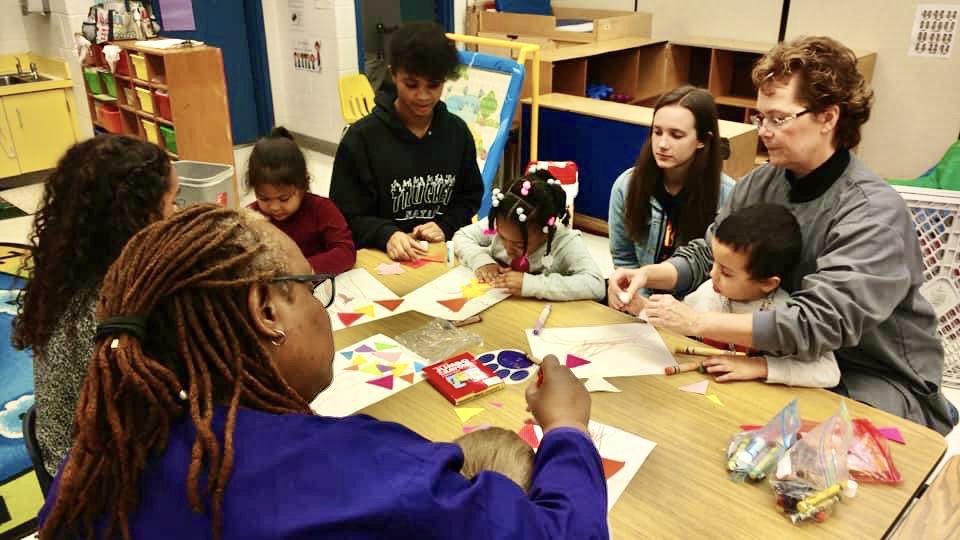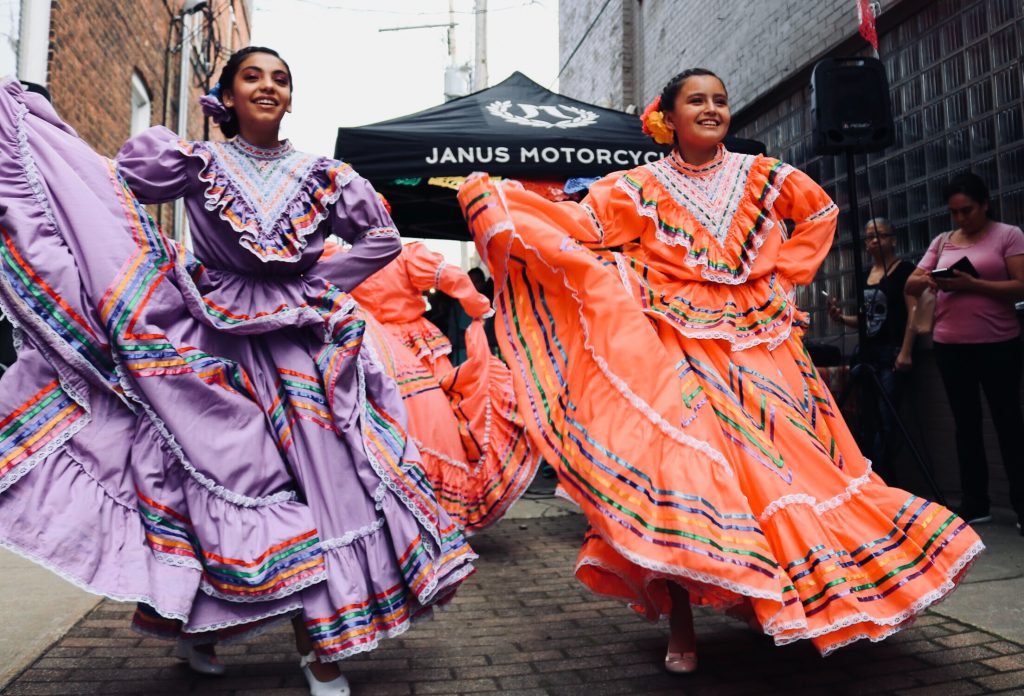SPAN 102
Interpretive, Interpersonal, and Presentational Modes of Communication
Exploring Culture
I didn’t learn things that most people would consider new to them, like the week starting on Monday or that the months of the year are usually lowercase because I started taking Spanish in the second grade and stopped in eighth grade (took a break for 9th and finished Spanish 2 & 3 in 10th grade). But what I’ve learned from my many years of Spanish is that the language is so diverse.
I think this is why I’ve struggled so much because I’ve had so many different teachers from different places (Spain, Mexico, the Dominican Republic, Venezuela, Chile, Columbia, Cuba, and Puerto Rico) to the point that everything I’ve learned is all jumbled up. Different words have different meanings everywhere, and there’s no guarantee that people from another country will interpret what you’ve said the same way. So that’s why sometimes I even confuse my teachers and myself because I’ll learn different ways to say things, and they’ll have no idea what I’m talking about, and I can’t even tell them where I’ve heard it because it could be from anywhere.
Engaging in Communities
Engaging in our communities is essential because it makes sure that we know what’s going on in the world around us and what we need to improve upon. Oftentimes, we only look at the bigger picture when we’d like for things to change. We have to realize that creating a significant change often starts with tiny steps in the right direction.
I’ll never forget taking a field trip to a local elementary school for a day. Our art teacher had taken us out of class to teach art to elementary school kids. I remember how excited everyone was to go, but not many people wanted to go in the resource room (or what they like to call the special needs room), so I convinced my friends to go in there.
I know what it feels like for students and teachers to ostracize you because you are different, which made me want to ensure that they had as much fun as the other kids, even if it took more time and patience. This day opened my eyes to what kind of teacher I want to be, one who doesn’t count students out or labels them as less likely to succeed because they have a learning disability. I want to be one who really reaches out to one’s struggling with learning disabilities because I’ve been there, and it’s not a fun road to walk alone.
Growing up as a child with ADHD in a Catholic School as a minority was a painful experience in itself, and I wish that there was someone there who hadn’t already made up their mind that I would fail when they saw the color of my skin and read my diagnosis. But I’m happy I went through that because it makes me quick to stand up for kids at my job being made fun of for having dyslexia or ADHD. Because at the end of the day, having a disability doesn’t mean that you’re less intelligent than everyone else. Instead, it just means that you learn differently from everyone else, and that’s okay.

Interpersonal Communication
This semester we had to complete TalkAbroads, where we had conversations with people from around the world in Spanish. And it was nice that we were given a chance to read about each person’s interests before choosing to have a conversation with them. I enjoyed speaking to a woman named Jimena from Ecuador about clothing and places we liked to visit.
The biggest challenge that I’ve had this semester is not getting discouraged and keeping an open mind when things have seemed impossible to learn, especially when it comes to conversations because that’s always been my Achille’s heel. But I’m happy that I can say that I survived a TalkAbroad conversation for 15 minutes with a stranger from Ecuador, and my mind didn’t draw a blank. I had some moments when I had to sort of pause and think of what she was saying, but overall I did way better than the semester before. I think what helped me is writing down some questions ahead of time and preparing. Also, how patient she was even when I messed up or needed to ask for clarification. I found it comforting to know that if I did horrible, I would never have to see her again so I wouldn’t feel stupid. Next time I’ll ask more questions if I don’t understand a word, and I’ll also try not to laugh and say “um” so much.
Presentational Speaking
An example of presentational speaking that we’ve completed throughout the semester is partner conversations. When we had partner conversations on VHL, some of us prepared our answers assigned to us as homework beforehand, and then we combined our answers and questions to form conversations. This was sometimes really difficult to do when the other person didn’t come prepared or never contacted you when you planned on completing the assignment before the due date.
I was pretty good at writing out the answers to the questions but not so much when it came to double object pronouns, but I think I’m getting there. I tend to struggle with anything where I have a partner because I worry about being penalized if my partner doesn’t work with me, like for my first partner conversation. Next time I’ll reach out if I’m struggling to get things done with my partner because I don’t usually say anything if I’m having a problem, but now I’m learning the hard way that nothing can be fixed unless you tell someone that something’s not working.
Presentational Writing
Forms of presentational communication that we’ve completed this semester are compositions. Before we write our compositions in class, we’re given a prompt and a layout for writing our brainstorm. Our brainstorm serves as a guide to keep our writing on track and to ensure that we hit all the points we intended to cover in our composition draft.
Compositions have been way easier for me than oral evaluations because I’m better at writing than speaking in Spanish and life in general. It’s something about seeing what I’m saying and having the ability to go back and correct it that makes me a little less on edge. I used to panic about compositions initially, but when I created a great brainstorm as a layout, I knew that I wouldn’t struggle to get the assignment done. But one thing that I constantly struggled with was time. I love writing, and sometimes I get a little carried away, and I’d have to use time after class to finish. But I don’t think that’s necessarily a bad thing because it ensured that I submitted work to the best of my ability.
Interpretive Listening
Some of the interpretive listening activities that we’ve completed this semester were conversations with the speakers on VHL. This is where they’d ask us a question and wait for a response and then ask us another question until the activity was complete. So this forced us not only to listen but also to put what we’ve learned into action.
One thing that was challenging for me was the speed because I felt like they talked a little too fast for me. So I’d have to manually control the pace because I needed time to make sure that I had completed my thoughts. This helped me get in the habit of repeating the sentence back to the speaker while changing the point of view/opinion. It was also fascinating listening to the recording back because it’s strange to hear yourself speaking. I’ve gotten much better to the point that I don’t have to think as hard to formulate an answer to the question because, in my head, I can flip the question back to match my agreement or disagreement without overthinking.
You hear: ¿Qué hacen ellos?
You see: acampar
You say: Ellos están acampando.
Interpretive Reading
An excellent example of interpretive reading that we’ve completed this semester is our discussion boards. They require us to interpret what’s being said and to decide how we want to answer the questions. So little by little, we are adding new words and phrases to our vocabulary while increasing our overall understanding and knowledge of the Spanish language.
What was challenging for me was commenting and critiquing other people’s posts because I know that some people can’t handle other’s feedback, and I didn’t want to be too harsh. I feel most comfortable giving feedback in my education courses because we’re all future educators, and we know that we all have good intentions. But for foreign language classes, it’s more complicated because I’m learning new things, and it sometimes causes me to doubt my findings because I’m used to editing things in English.

